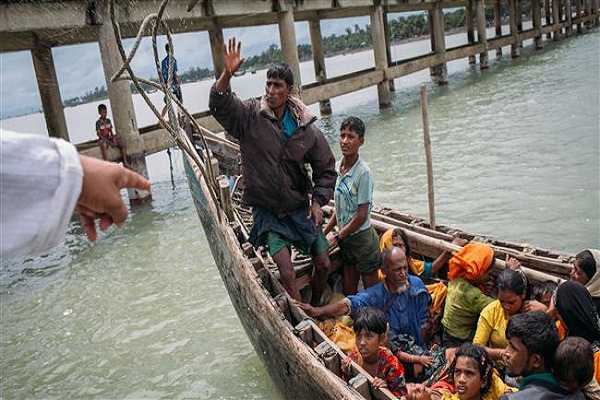"In Syria, for instance, we all know that if world countries had adopted an approach based on justice, the crisis would have been over. But, unfortunately, some supported Daesh (ISIL or ISIS) and some backed the (so-called) Free Syria Army and did not let the people of the Arab country resolve the crisis.”
Igidov also slammed Muslim states’ muted response to the Rohingya crisis, saying while countries like Saudi Arabia and the United Arab Emirates donated millions of dollars for the reconstruction of areas damaged in recent hurricanes in the US, they have failed to address the situation of thousands of Rohingya refugees in Bangladesh.
Muslim countries should do more than just issuing statements, he underscored.
The Georgian Muslim official also warned that Muslims should be cautious not to let terrorist groups infiltrate Myanmar Muslims and prevent moves aimed at escalation of tensions among Muslim and Buddhist communities.
On Thursday, the United Nations appealed for "massive” help for nearly 400,000 Muslims from Myanmar, who had fled to Bangladesh since late August, in a mass displacement described by the world body’s head, Antonio Guterres, as ethnic cleansing.

"We urge the international community to step up humanitarian support and come up with help,” Mohammed Abdiker, the director of operations and emergencies for the UN’s International Organization for Migration, told a news conference in the Bangladeshi capital, Dhaka.
The number of the refugees "may rise to 600,000, 700,000, even one million if the situation in Myanmar does not improve,” he added.
Myanmar’s government brands more than one million Rohingya Muslims in the country as "illegal immigrants” from Bangladesh, launching a deadly and brutal crackdown on them. Rohingya Muslims, however, have had roots in the country that go back centuries. They are considered by the UN the "most persecuted minority group in the world.”
Since August 25, the Myanmar military has significantly stepped up its clampdown on the persecuted Muslim community, mainly based in the country’s western Rakhine State, following a series of attacks on army and police checkpoints there.
Meanwhile, Amnesty International and border officials in Bangladesh say the Myanmar military has planted landmines on the path of the fleeing Muslims, causing many of them to sustain serious wounds or lose their body organs.
Amnesty said on Friday that it has evidence of the military’s "systematic” torching of Muslim villages.
"Rakhine State is on fire,” said Olof Blomqvist, a researcher with Amnesty International, in a "clear campaign of ethnic cleansing” by Myanmar’s forces.
The government, which has come under intense international pressure over its brutal crackdown, claims 432 people have been killed in the military offensive, but the UN and rights groups have give much higher figures.
Three days into the outbreak of the violence, the European Rohingya Council said between 2,000 and 3,000 Muslims were killed in Rakhine state. The UN also said last week that 1,000 people may have died.









